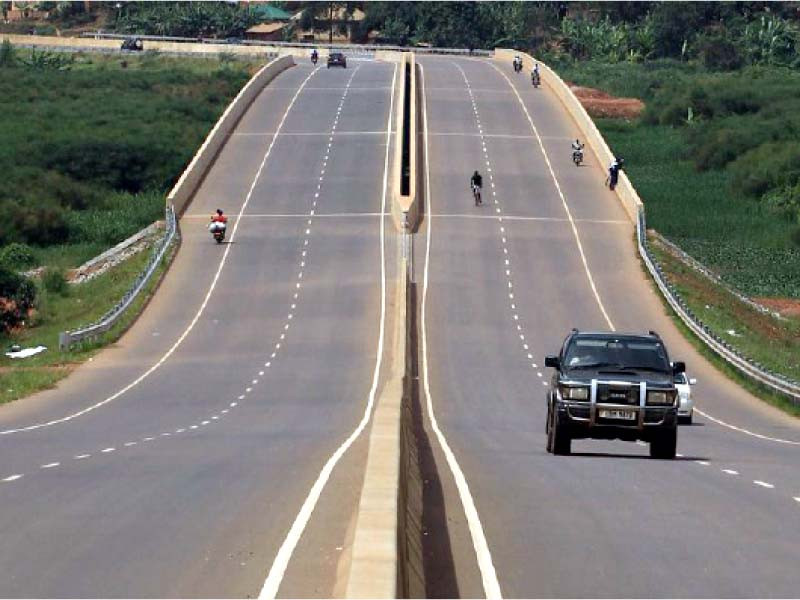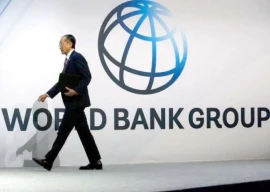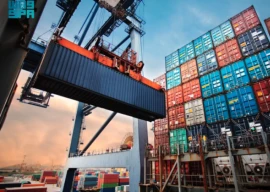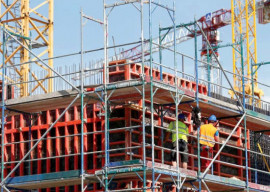
The government on Monday cleared two new development projects worth Rs196.5 billion, including the Hyderabad-Sukkur motorway at a cost of Rs191.5 billion aimed at completing a major missing link of the eastern corridor that connects Gwadar and Karachi ports.
The Central Development Working Party (CDWP) approved one project worth Rs5 billion and recommended the mega scheme of Hyderabad-Sukkur motorway worth Rs191.5 billion to the Executive Committee of National Economic Council (Ecnec) for further consideration, said the Ministry of Planning and Development.
The CDWP has the mandate to approve projects of up to Rs10 billion and recommend schemes of higher cost to Ecnec for final approval.
The motorway project was initially expected to be completed at a cost of Rs165 billion, which will now increase to Rs191.5 billion.
The China-Pakistan Economic Corridor (CPEC) route that traverses Islamabad-Lahore motorway (M2), Pindi Bhattian-Faisalabad-Multan motorway (M4), Lahore-Abdul Hakeem-Multan-Sukkur-Hyderabad-Karachi motorway network, known as the eastern corridor, connects the ports of Karachi and Gwadar.
The Hyderabad-Sukkur motorway was a missing link, having 306 km length, which the National Highway Authority will build through private sector participation to complete the north-south link of the eastern corridor.
The Hyderabad-Sukkur motorway project envisages construction of a six-lane wide, access-controlled motorway.
The project had been discussed in the last CDWP meeting on April 12 and chief executive officer of the Public Private Partnership Authority (PPPA) had been directed to present a report on the viability gap funding (VGF), said the planning ministry.
The financial structure information was shared with the CDWP and it was apprised that the PPPA board on April 22 approved the provision of Rs92 billion from the budget and through toll charges to make the Hyderabad-Sukkur motorway project financially viable and attractive for private parties, stated the ministry.
PPPA presented the financial model approved by its board before the CDWP. The CDWP recommended the financial model for consideration of Ecnec, which stated that the project would be implemented on a BOT - user-charge basis with the provision of capital and operational VGF to improve the financial viability and bankability of the project.
In case of taking the full obligations on the budget, the VGF requirement would have reduced to Rs75.9 billion. Initially, the share of federal government was only 0.7% or Rs1.1 billion. But the government’s share has been increased after it decided to pick the overhead charges like escalation cost of Rs12 billion, contingencies of around Rs3 billion and interest during construction of Rs8 billion.
The CDWP discussed in detail the reasons of picking up the additional cost and the PPP Authority informed that the project contract would not be awarded in the Engineering, Procurement and Construction (EPC) mode.
The contractor will collect the toll from commuters for 25 years and the first year toll rate will be Rs860 per car, which the contractor will be allowed to increase 7.5% annually.
The CDWP endorsed the approval of the provision of Rs43 billion from the budget during the construction period as capital injection and another Rs49 billion as operational VGF with Rs7 billion per annum for the debt service period of seven years, according to the decision.
As per the decision, the NHA will ring-fence the cash flow of the M5 motorway (Multan-Sukkur) in an escrow account and make payments out of it to the contractors. The government will extend the standby letter of credit (SBLC) to securities the payment obligations.
The NHA informed CDWP that there was poor response in the prequalification process, as only one company submitted expression of interest and the process had to be annulled. The NHA said that the causes of low response were primarily inadequate amount of government contribution and absence of guarantees.
The CDWP meeting, presided over by Planning Commission Deputy Chairman Mohammad Jehanzeb Khan, approved the project related health namely “Strengthening of Existing DHQs, and selected THQs, RHCs, BHUs in District Awaran, Washuk, Khuzdar, Lesbela , Panjgur, Gwadar and Kech (Less Developed areas of the Balochistan)” worth Rs5 billion approved in the meeting.
The project envisages strengthening of seven districts of South Balochistan through provision of civil infrastructure, medical equipment, machinery and ambulance.
Published in The Express Tribune, April 27th, 2021.
Like Business on Facebook, follow @TribuneBiz on Twitter to stay informed and join in the conversation.










1730379446-0/WhatsApp-Image-2024-10-31-at-17-56-13-(1)1730379446-0-270x192.webp)








COMMENTS
Comments are moderated and generally will be posted if they are on-topic and not abusive.
For more information, please see our Comments FAQ